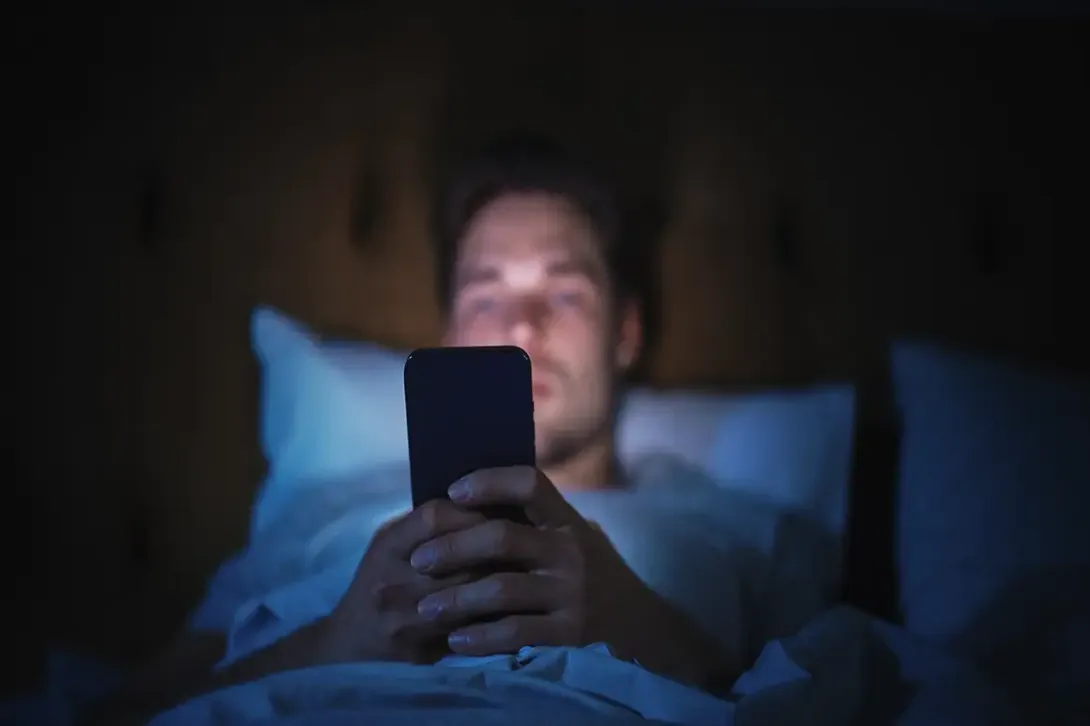
The effect of screens on sleep
Screens are a great ally today, but they can also be responsible for some health problems. One of the most common ones is the difficulty in falling asleep.
Today, most of the population spends hours and hours interacting with different screens: computers, tablets, mobile phones, videogame consoles or televisions form part of virtually everyone’s daily life. And with this exponential increase in use, we should ask ourselves: what effect do they have on our health? Can they be harmful?
Accordingly, several studies have already warned that being exposed to screens before sleep is harmful. Consulting social media or emails before going to bed can result in insomnia, amongst other sleep disorders, causing a lack of quality rest, which is necessary for our organism to function correctly.
Sleep and screens: an impossible balance
While a person sleeps, their organism recovers from the day. This is its mechanism for getting ready physically, emotionally and cognitively for the following day. “Sleep helps to consolidate the memory, it regulates moods, it allows the recovery of the cardiovascular system, it regulates the body temperature, it manufactures certain hormones, etc.,” according to Doctor Paula Giménez Rodríguez, a specialist in clinical neurophysiology and provincial delegate of ASISA.
Screens of electronic devices issue blue-white light, a light spectrum that influences the human biological clock, located in the suprachiasmatic nucleus in the hypothalamus, and that “regulates the frequency of certain body functions, amongst which is sleep.”
In order to function correctly, this biological clock needs some external synchronisers, of which light is the most important. “When our brain, through the retinas, perceives this blue-white light, it receives the signal that it is daytime and it manufactures the chemical substances that keep us awake (cortisol, histamine, serotonin,…) and it inhibits the manufacture of melatonin, which is the sleep hormone,” doctor Giménez explains. That is to say, if a person uses these screens two hours before going to bed, in reality, they are telling their brain —mistakenly— that it is daytime.
Additionally, the use of screens implies an over-stimulation of the brain, completely the opposite of the attitude of relaxation which, according to the expert, is needed for a good rest. And here is where insomnia appears, a sleep disorder that in Spain already affects between 25% and 35% of the adult population in a temporary way and between 10% and 15% chronically, according to data from the Spanish Neurology Society (SEN).
The main problem that Doctor Giménez warns about is the rise in this night-time habit, which is becoming increasingly widespread amongst the younger population. And the fact is that a lack of sleep or bad quality sleep is linked, amongst other problems, “to low school or work performance, to mood swings (anxiety or depression), to having headaches, accidents and in the longer term, to metabolic and cardiovascular diseases,” she underscores.
How to guarantee a repairing sleep
Avoiding insomnia and all the health problems linked to it, demands irrevocably putting the focus on how and when screens are used. The experts openly recommend putting all the electronic devices to one side, at least, one or two hours before going to bed. A good, relaxing book is always better than blue light and the stimulation of viral videos. But not only this: the doctor recalls that to rest properly you must also “leave your problems and worries for the following day” and “follow a routine of regular meal times and sleep times, going to bed and getting up at the same time every day.”



